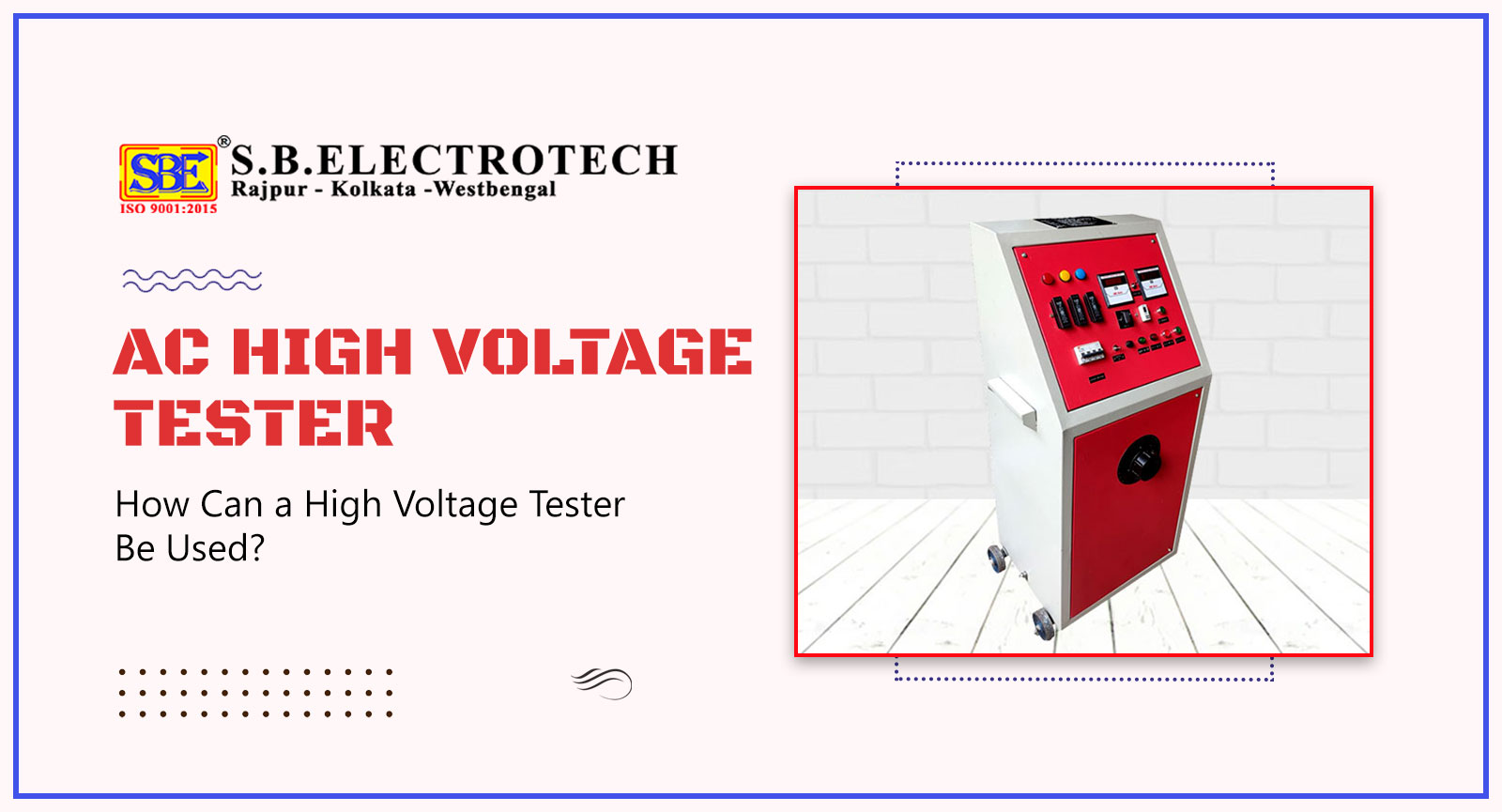In electrical engineering, ensuring safety and reliability is a must. The integrity of electrical systems is non-negotiable, whether it’s in power distribution networks, manufacturing plants, or research laboratories. This is where testers like AC High Voltage Testers step in as important tools, serving as guardians against potential hazards and malfunctions. Let’s dive deeper into high-voltage testing and explore how these devices are utilized to uphold electrical safety standards.
High Voltage Testers
High voltage testers, also known as hipot testers or dielectric strength testers, are instruments designed to verify the insulation quality and integrity of electrical equipment. They assess whether the insulation can withstand the stresses of high voltage without breaking down or causing a hazardous situation. These testers apply high voltage to the device under test (DUT) while monitoring for any signs of leakage current or insulation failure.
The Two Main Types Of These Testers Include:
DC High-Voltage Testers: These testers produce a direct current (DC) high-voltage output to assess the insulation resistance of cables, transformers, and other high-voltage components. They are used to test the dielectric strength of insulating materials.
AC High Voltage Testers: AC high-voltage testers generate alternating current (AC) high-voltage output for use in a variety of insulation testing applications, including hipot testing and dielectric strength testing.
Here Is How These High Voltage Testers Can Be Used
Ensuring Equipment Reliability
One of the primary applications of high voltage testers is to evaluate the reliability of electrical equipment. Before deployment or during routine maintenance, various components such as cables, transformers, capacitors, and switchgear undergo rigorous testing to confirm their insulation integrity. By subjecting these components to high voltage stress, testers identify weaknesses or defects that could lead to equipment failure or electrical accidents.
Compliance with Safety Standards
In industries governed by stringent safety regulations, high voltage testing is not just a recommendation but a legal requirement. Organizations must adhere to standards set forth by regulatory bodies such as the International Electrotechnical Commission (IEC) or the Occupational Safety and Health Administration (OSHA). High voltage testers enable companies to demonstrate compliance with these standards by conducting routine insulation tests and documenting the results for audit purposes.
Detecting Insulation Faults
Insulation breakdown is a common cause of electrical failures and poses significant safety risks. High voltage testers play a crucial role in identifying insulation faults before they escalate into catastrophic events. By applying voltages higher than the operating levels, testers stress the insulation beyond normal conditions, allowing any weaknesses to manifest. Early detection of insulation faults enables proactive maintenance and prevents costly downtime or accidents.
Quality Assurance in Manufacturing
In manufacturing processes involving electrical components, quality assurance is very much vital. High voltage testers are integral to the production line, where they verify the insulation integrity of newly manufactured products. Whether it’s cables, motors, or electronic devices, each item undergoes stringent testing to ensure compliance with specifications and industry standards. By implementing high-voltage testing protocols, manufacturers uphold product quality and safeguard end-users against potential hazards.
Research and Development
Innovations in electrical engineering often require rigorous testing to validate new technologies or materials. High voltage testers serve as indispensable tools in research and development laboratories, where scientists and engineers explore novel solutions for various applications. Whether it’s advancing insulation materials, optimizing power transmission systems, or enhancing electrical safety measures, high voltage testing provides valuable insights into the performance and reliability of emerging technologies.
Conclusion
High voltage testers are widely utilized for ensuring compliance with regulatory standards to detecting insulation faults and facilitating research endeavors in electrical engineering. The importance of high-voltage testing is steadfast in upholding the integrity of electrical systems and protecting lives and assets from potential harm. In other words, high-voltage testers ensure that power flows safely and reliably.

S.B.ELECTROTECH
S.B. Electrotech is a company that specializes in manufacturing of electrical and electronic testing and measuring instruments. With years of expertise in this field, we ensure to provide high quality, safe, and sustainable products.




